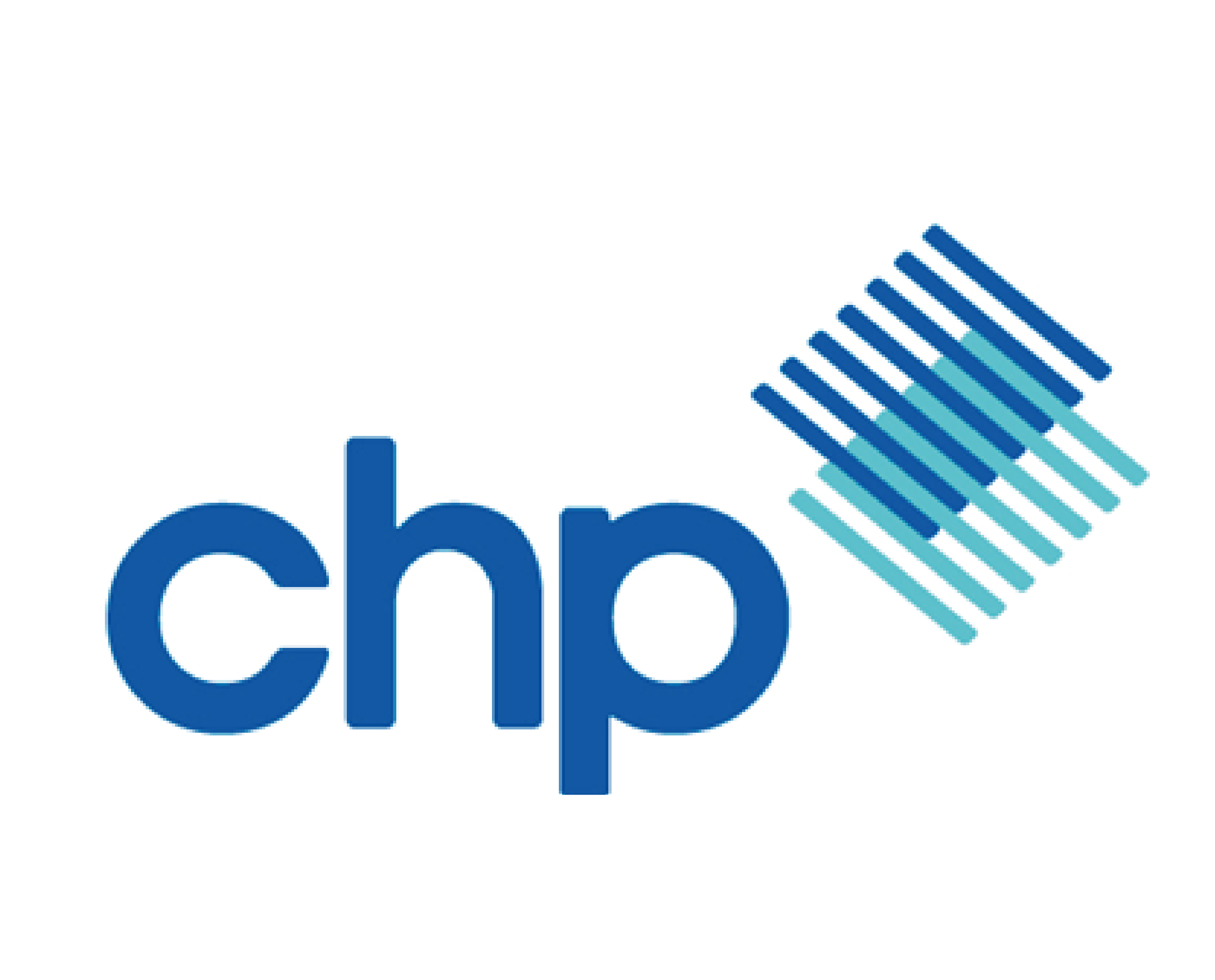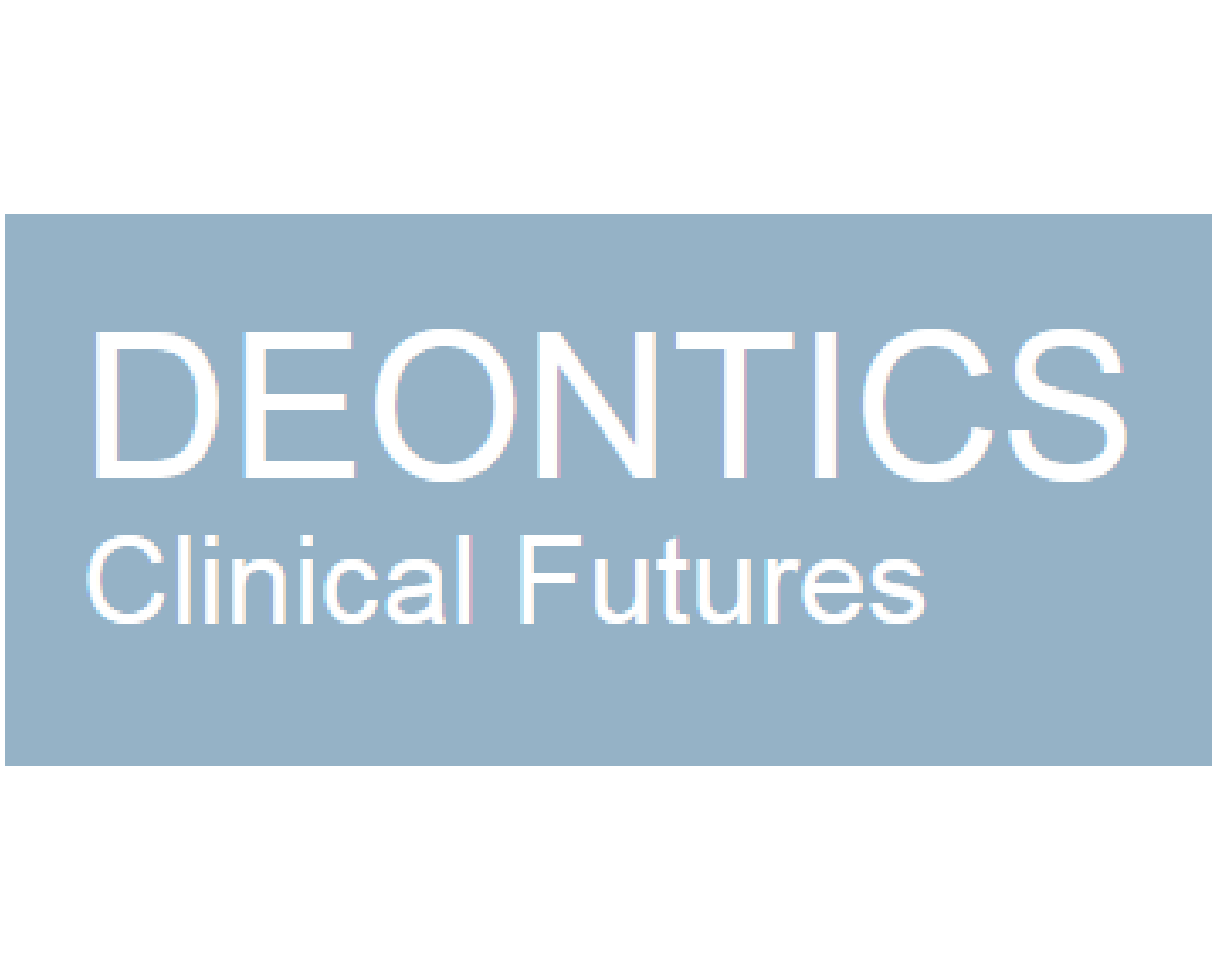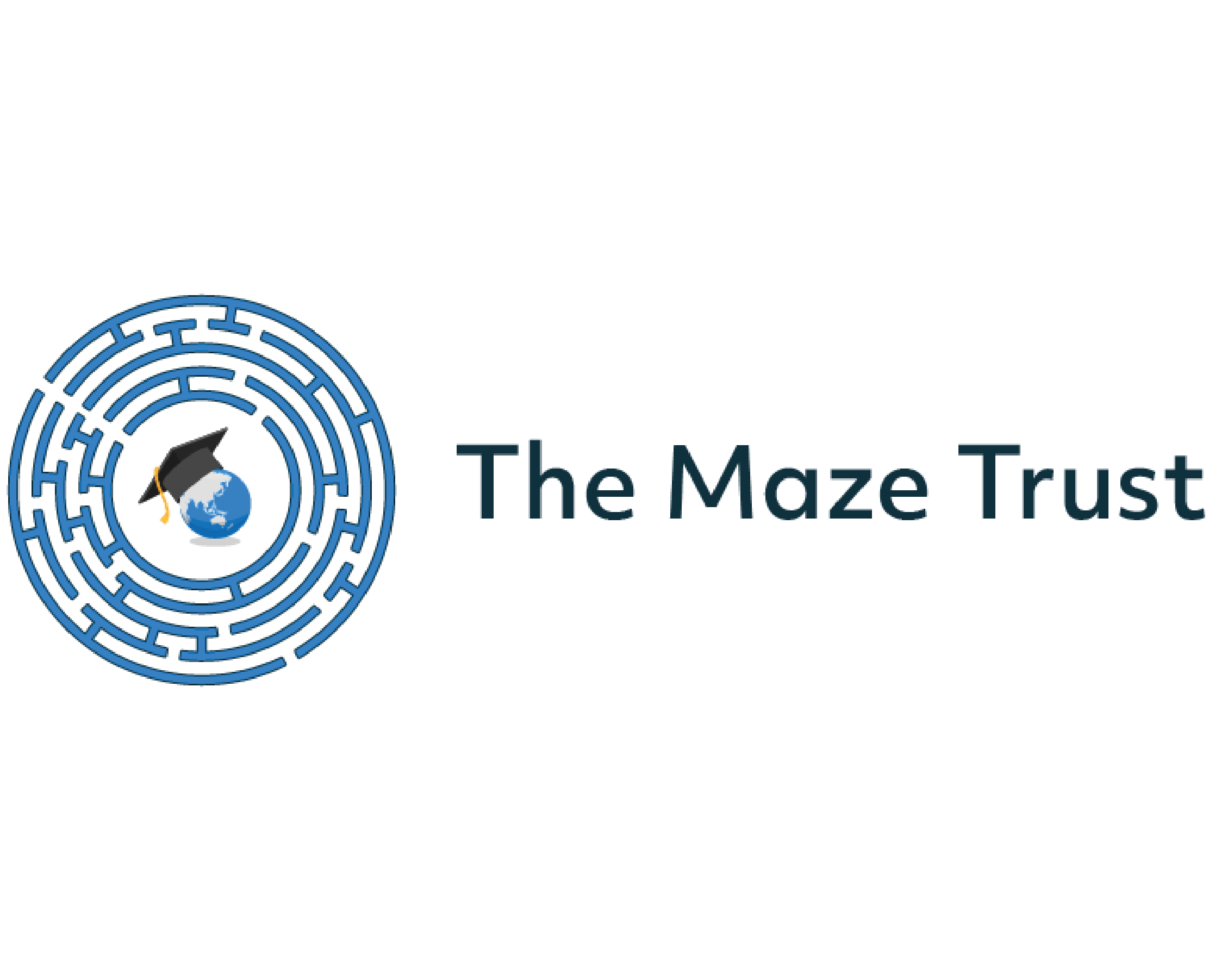Project Description
About the Client
Deontics Ltd is a world-leading Artificial Intelligence company with Clinical Pathway and Clinical Decision Support Systems (CDSS) solutions which can enhance patient safety and save money. Their solutions provide key information and analysis of complex clinical information and other patient information to assist in the diagnosis of multiple clinical conditions.
The Royal Liverpool and Broadgreen University Hospital Trust is a leading NHS acute care organisation in the north of England. The Trust is host to one of the largest cardiac care units in Europe.


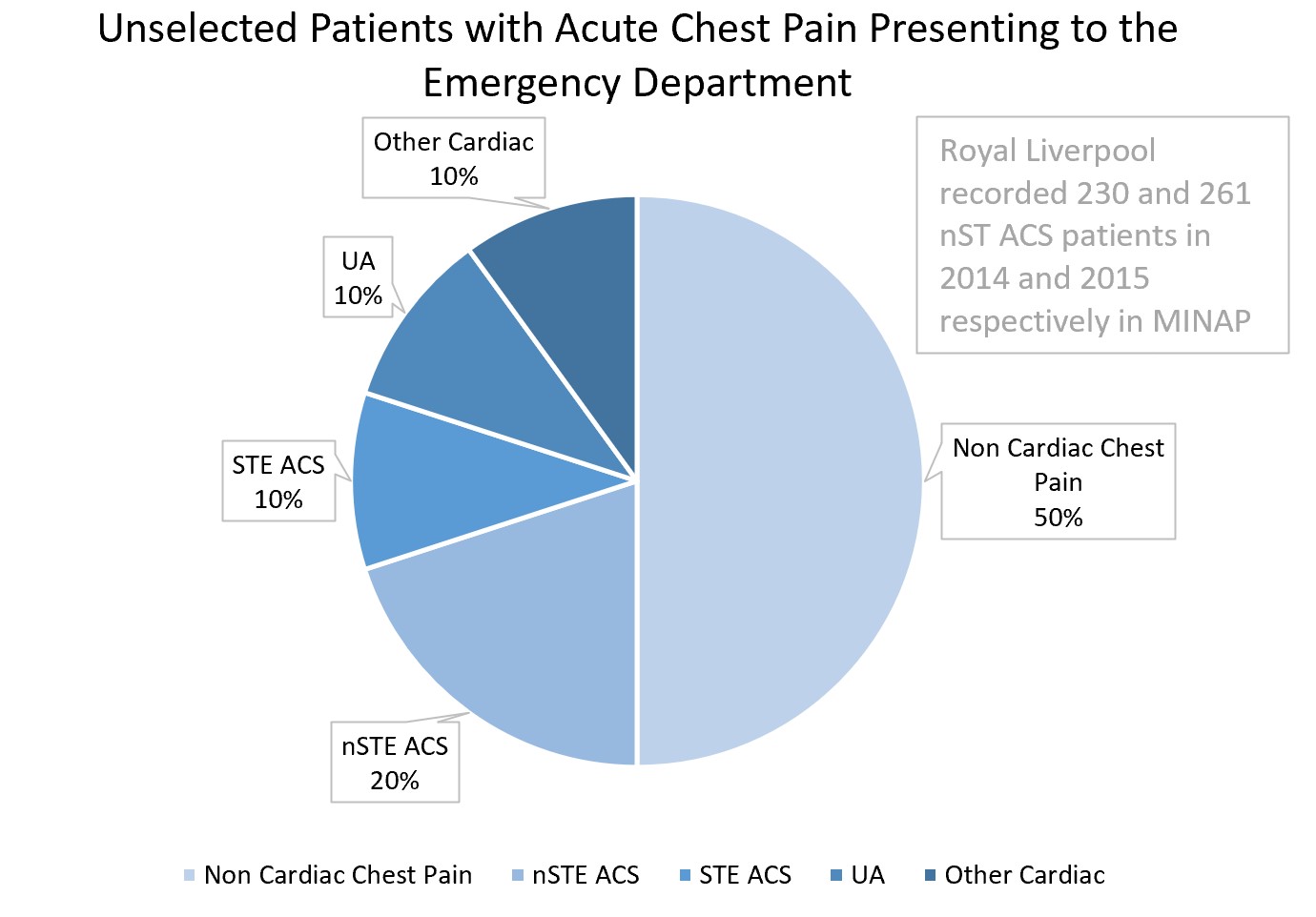
The Project
Deontics and Royal Liverpool and Broadgreen University Hospital Trust worked closely together to implement new solutions for Acute Cardiac Care (in their Acute Cardiac Care Unit), and then looked to implement the Deontics technologies to other areas of the Trust.
As an independent organisation, Strategic Discourse were asked to assist the Trust with analysing and verifying the implementation and outcomes of the programme.
Although Strategic Discourse were working to provide independent verification for the Trust, the team was required to work closely with both the teams from Liverpool and Deontics to ensure the best overall outcomes for both patients and clinicians. The needs of the end service users always remained a core focus of work conducted by Strategic Discourse.
The team was also able to provide Deontics with the correct information and proof points to support a business case for a wider roll out of their services across the Trust.
Our Approach
As with most of Strategic Discourse engagements, the team initially carried out a discovery phase, to ensure a full understanding was gained on the proposed solutions, the current situation, the expected outcomes post-implementation, and other key metrics. This required in-depth demonstrations and interviews with the clinicians and the development team at Deontics.
As the independent analysis partner for this project, Strategic Discourse teams had to ensure an unbiased and data-led approach was followed throughout the lifetime of the programme. The team started by conducting a baseline data analysis of the data captured by the Trust for a specified period before the AI system was implemented. Key metrics were documented and a report was produced for Deontics, and the Trust, prior to implementation.
The teams then worked closely with clinical teams at the Trust and the development and implementation teams at Deontics to ensure the best outcomes for patients and clinicians were delivered. Often, transferring to a new system can be met with resistance and confusion. Strategic Discourse assisted Deontics during their implementation process to ensure clinicians understood how the system worked and that they were inputting data correctly. This involvement and support was key as analysis and accurate evidence-based conclusions/recommendations could only be drawn if the system was used appropriately.
After the system had been implemented for a specified length of time, the metrics gathered previously were revisited. Comparisons of these metrics enabled the team to conclude if the AI system implemented had achieved desired outcomes. A full analysis and recommendations report was produced based on the findings.
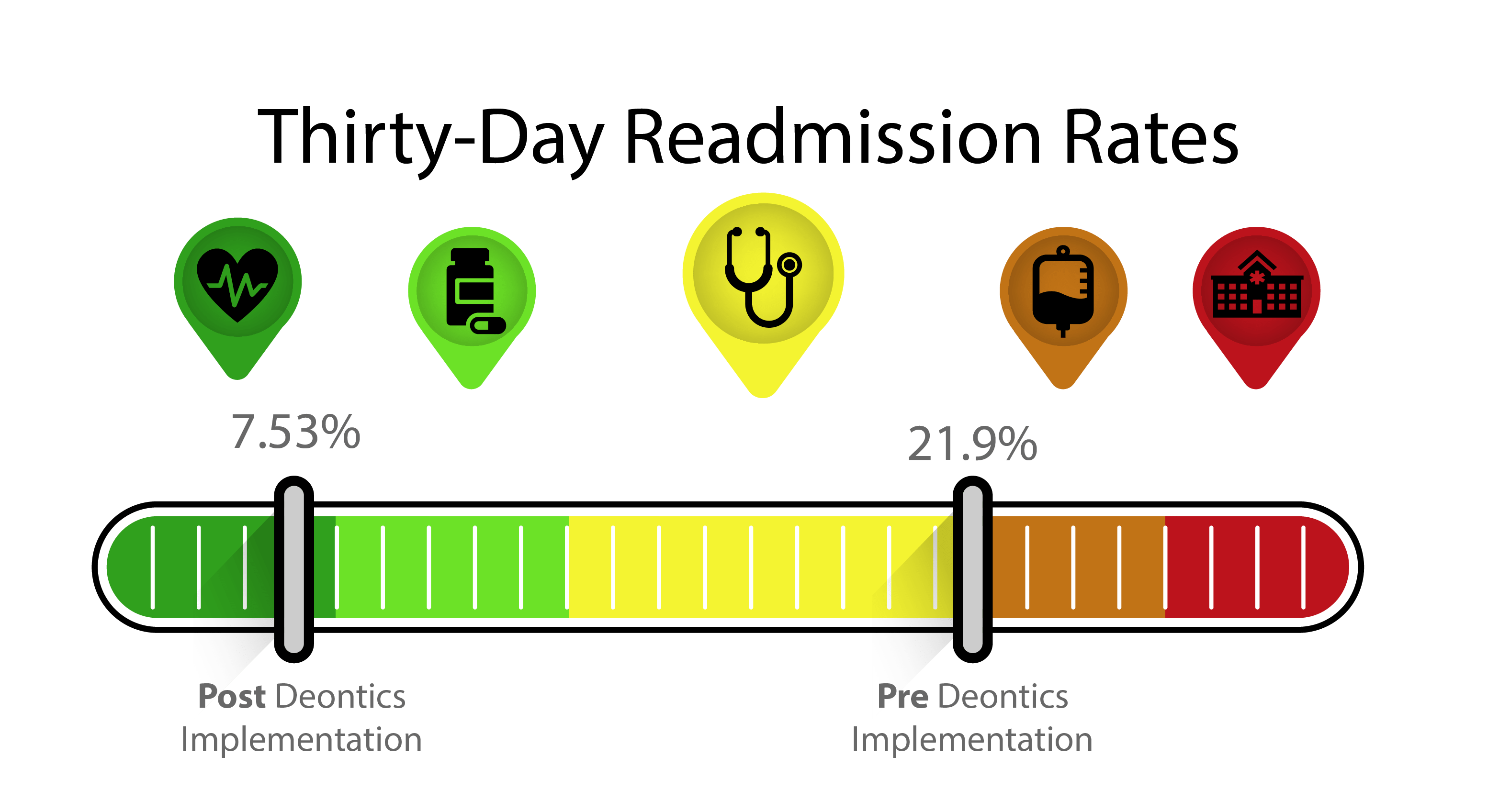

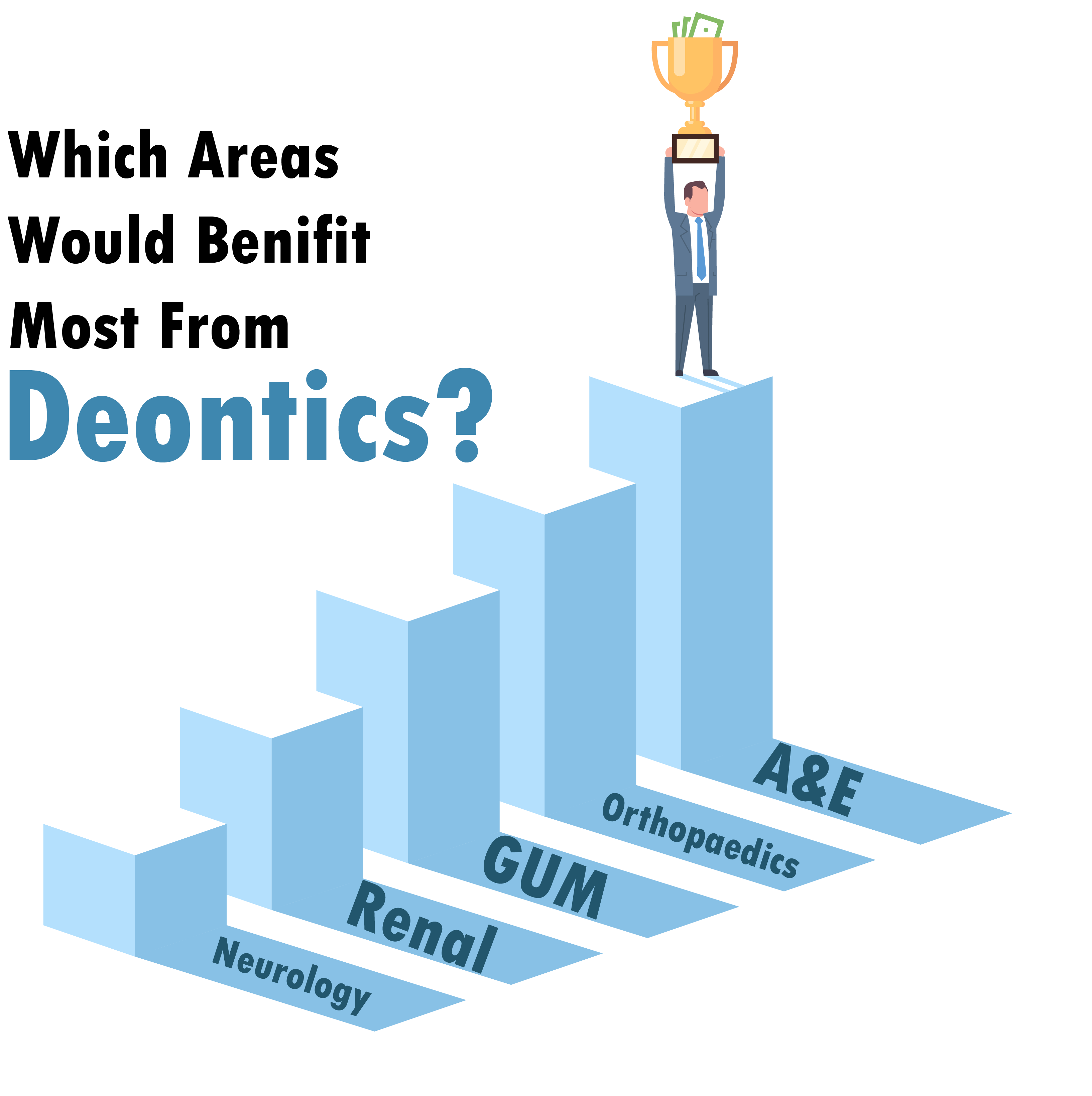
The Outcome
Working closely with the various teams, Strategic Discourse were able to ensure that the solutions implemented at the Royal Liverpool and Broadgreen University Hospitals Trust ensured an increase in the best management of complex cardiac care at the Trust.
The detailed analysis, carried out by the team once the implementation was complete, showed an achieved decrease in Length of Stay, Mortality Rates (30 and 90 day) and a very marked decrease in 30-Day Readmissions of over 65%. The analysis also showed that more patients who were high risk were offered coronary angiography and greater financial efficiencies were realised through a reduction in over/unnecessary prescribing medication.
Strategic Discourse were retained to help produce a follow-up Business Case for wider implementation in areas where greater efficacies and even better patient outcomes would be realised.






